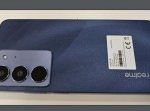Sitting in his Ashfield office within the Bill Crews Foundation he’s spent his life creating, the Uniting Church Minister is uncomfortable talking about the man behind ‘Bill the Brand’. Bill the Brand has strangers approach him every day, saying he’s changed them. Bill the Brand has raised $70 million for people in need, fed over three million meals to the homeless and taught thousands of kids to read so they can break the poverty cycle.Bill the Brand is one of Australia’s 100 National Living Treasures, and for good reason.But Bill the man has been broken by heartbreak over his 76 years, being disowned by his parents, struggling to cope with two failed marriages, and up until 10 years ago, had strained relationships with his four children.Bill the man counts the Dalai Lama and John Singleton among his closest friends.He’s lonely. He’s vulnerable. And he’s grateful.“That can either break you, or break you open,” he told Saturday Extra.“And I hope with me, it broke me open.“The Buddha says a broken heart is a beautiful thing because it learns compassion, so I can use that experience of what I feel in a compassionate way that improves and helps people in society.”Crews has written Twelve Rules For Living A Better Life, a moving memoir which will be released by HarperCollins next month. In it, he shares intimate insight into his private life as well as well-earned wisdom on how to be a better human, revealing the incredible highs – and lows – of his remarkable journey.“I find it hard to read,” he admitted.“I find it hard to look at … some of the bits in there are really painful.“I’m much easier talking about Bill the Brand than talking about Bill the human being, but it forced me to look at my life as just a story.“I can hold it intensely in, but when you read some of the other stories in life, it’s just one.“I think if I’m really honest, I think that’s why I like Singo and the Dalai Lama so much, because I think they feel that loneliness too.“Everyone has a story.”Like the congregation he leads today, Crews grew up feeling like an outsider. Unlike his younger brother Bob, Bill was a “dreamer” and his father wanted him to “toughen up”.“While Bob was winning awards for his sporting prowess, I was reading, thinking and pondering,” his book reads.“I would give my stuff away, and Dad would be angry with me … all in all, I felt I was a disappointment to him.“I could never quite get a look in with my mother either. Dad dominated her, and what he said, went.“With the birth of my sister, I felt even more like an outsider to the family.”The family moved from St Marys to Riverstone and Townsville before returning to Sydney. Being bullied in his school years, Crews says, made him a better person, with “real change only happening in excruciatingly painful situations”. Despite the pain, he won a scholarship to study engineering at the University of NSW and got a cadetship with BHP to follow his father’s footsteps as an electrical engineer.After the tragic death of his brother Bob in a car accident, the dynamics between he and his parents worsened. He searched for guidance and “something more”, ending up in Kings Cross, where he would go to the Wayside Chapel, pastored by Reverend Ted Noffs.“I was doing well … but I wasn’t happy,” the book reads.“In some part of me I knew I was just following the part of my father, not finding my own way.” He soon became a volunteer at the Chapel, and for the first time in his life, felt “at home”.“They were all my brothers and sisters – the counsellors and the people in trouble were my family … this was my tribe.”It was there in the 1970s that Crews heard the voice. An experience he describes as “a knowing”, which told him to leave his job and work at Wayside, helping the poorest of the poor.The urging to change his life completely couldn’t be ignored.“I just had to do it. I’ve always had a choice – but no choice,” Crews said.“Forty years later in psychotherapy, I was saying ‘why me, why me, why me’ – and he said ‘because the voice knew he would carry it out’, and that’s true.”His father disowned him and he became estranged from his family and most of his friends from his old life. He had a son, Michael, with first wife Barbara, a woman he met at Wayside who abandoned the pair when Michael was two, devastating Crews. He then met Gill, a helper at the chapel who “got into his soul”.The couple wed and had daughters Emelia (Eme) and Alex, as well as son Tim. But Gill soon got sick, and it was discovered the blood she had received prior to Eme’s birth was contaminated and she contracted hepatitis C. The news made Crews agitate for a Senate inquiry into tainted blood, an issue that remains close to his heart. He and Gill were divorced in 2004 after 20 years of marriage.Strained relationships with his children due to ‘life’ have improved in the last decade, all thanks to a lot of hard work and a gradual learning with therapy under his long-term psychologist Dr Bob Wotton and relationship expert Jon Graham. He was also able to improve relations with his parents before they died.“I have to remember to be grateful for the really warm relationships I have now and in a sense not mourn the past,” he said.“I met Jon because I was having difficulty with some of the congregation and I needed to find ways of getting through and it was looking at that and realising that you don’t talk to a banker the way you talk to a physicist or to a philosopher – you if you want to get the same message across, you have to use different forms of words and different ways – and it stated to work.“Then I thought, maybe there is a chance of rebuilding my relationships with my kids, and that took 10 years.“You don’t know what you don’t know. What I’ve learned in life is everything changes everything.“I might be talking to you and I might learn something which might relate with my family or whatever – so once I learned I could talk to bankers, I realised there are ways of talking to people.“The other thing I learned is that love and compassion is really the way – and the difference between sympathy and empathy is really important, and taking the egocentrismout of it, which is hard to do.“We will be sitting here and someone will say ‘I’ve had a terrible day’. Well the worst thing I could say is ‘I’ve had a worse day’ – but if I stay with that person, the magic starts to happen.“And being able to stay with my kids in their pain, and put my pain aside, enabled that to happen.”In 1986, with a theology degree from Sydney University, he was ordained a Minister and found himself at Ashfield, where his Foundation, a constant hive of activity, remains today.“Honestly, when I went to Kings Cross I was 25, and I saw all these things with these kids and it was wrong,” he said.“I just did what I thought any decent human being would do.“Obviously, it hasn’t been enough because kids like that turn up here everyday and it’s sobering to realise that everything has changed but nothing’s changed.“What I am trying to do is talk to people who can hear what I’m saying and want to do something.“So many people want to do something but don’t know what to do. And they don’t realise that all they have to do is go out of their front door and whistle.”He said half of it was showing up – the other half was following through.“A lot of people have all the right attitude and things, they just don’t do anything with it,” he said.“I asked a young fellow who works here what this place means to him – he said ‘everything’.“And to me, that’s everything.”Twelve Rules For Living A Better Life by Reverend Bill Crews, published by HarperCollins Australia, is on sale from May 5. Pre-order at Booktopia.
Powered by WPeMatico






